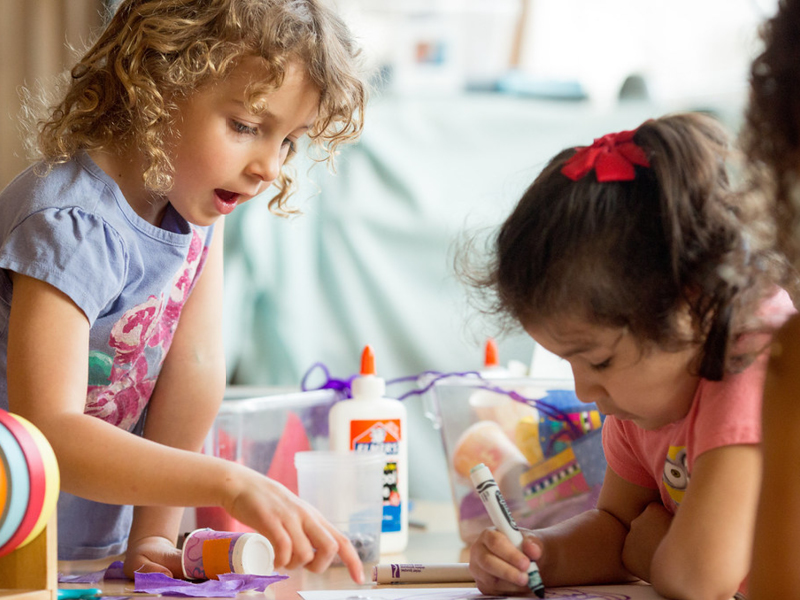The Texas Cultural Trust (TXCT)—a statewide nonprofit committed to bolstering support for the arts and spotlighting artistic excellence—announced key findings from their 2025 State of the Arts Report (SOTAR). In collaboration with leading researchers and institutions across Texas, the Trust publishes this biennial report to quantify the social, economic and educational value of the arts and culture sector across the state.
As part of the Trust’s Art Can program, the SOTAR provides a detailed overview of the impact of the arts in Texas and measures the degree of access to the arts and arts education within schools and communities. These statistics serve as an invaluable resource for Texas parents, educators, policymakers, artists, arts and culture organizations, and private entities to increase public support and funding for arts and culture.
“The Texas Cultural Trust remains steadfast in its commitment to investing in and championing the arts,” says CEO Heidi Marquez Smith. “Our 2025 State of the Arts Report reaffirms that the arts are not just a cultural cornerstone but also a powerful driver of Texas’ economy, education, and overall well-being. With these findings in hand, we call on fellow advocates to join us in expanding access to arts education and experiences for all Texans—enriching lives, strengthening communities, and securing a more vibrant future for our state.”
Key findings from the 2025 State of the Arts Report include:
- Art can fuel the economy:
-
- The Texas Arts and Culture Industry has grown 63% over the past decade, generating $7.3 billion for the Texas economy and nearly $459.1 million in state sales tax revenue.
- Across Texas, nearly 960,000 people are employed in creative careers, representing almost 1 in 14 jobs.
- 1 in 4 visitors in Texas participate in cultural tourism. Arts and culture tourists stay longer, bring more visitors, and spend more money than non-cultural tourists.
- Art can enhance education:
- Texas students highly engaged in the arts are:
- Up to 46% more likely to pass the Texas Success Initiative (TSI) criteria
- Twice as likely to meet Advance Placement/International Baccalaureate (AP/IB) exam criteria
- 20% more likely to earn college dual credit achievements
- Young adults with intensive high school arts experiences are more likely to demonstrate civic-minded behaviors, including higher levels of volunteering, voting, and engagement in local or school politics, regardless of socioeconomic status.
- National studies show that 94% of students highly engaged in the arts attended a four-year college, compared to just 7% of those with low arts engagement.
- High school students who enrolled in more arts courses had better school attendance by 2%, which is the equivalent of six school days per year.
- Arts education is not equitable across Texas school districts—61% of teachers providing elementary arts education instruction are not certified in the arts. Additionally, suburban secondary schools offer 59% more arts courses than rural schools.
- Texas students highly engaged in the arts are:
- Art can improve health and well-being:
- The arts and Creative Arts Therapies improve patients’ overall health outcomes, treatment, and quality of life:
- Studies show that attending just one cultural event a month reduces the risk of developing depression by 48%.
- Community cultural engagement, such as visiting a museum or theatre, every few months or more is associated with a 47% lower risk of developing dementia.
- Studies show that the arts aid in children’s neurodevelopment, as structured arts activities can boost cognitive abilities by 17%.
- Listening to prescribed music playlists can improve blood flow through damaged parts of a stroke patient’s brain and can increase functional connectivity by 18%.
- The arts and Creative Arts Therapies improve patients’ overall health outcomes, treatment, and quality of life:
This data reinforces the unequivocal importance of the arts, from improving academic outcomes and building more civically engaged youth to generating tourism revenue, combating cognitive decline and supporting mental well-being. Despite these widespread benefits, arts access and funding remain inequitable across Texas schools and communities.
“While the State of the Arts Report outlines the profound influence of the arts in Texas, it also identifies gaps throughout the state,” says Texas Cultural Trust Board Chair Mickey Klein. “As we work alongside other nonprofits to close this gap, we also need public investment in the arts to achieve long-lasting access to arts opportunities and arts education, so that all Texans can experience the transformative power of the arts.”
The findings of this research further the mission of the Texas Cultural Trust, steering the organization’s initiatives to enhance recognition and advocacy for the arts statewide.
For more information on the Texas Cultural Trust, Art Can, and the 2025 State of the Arts Report, visit https://txculturaltrust.org/what-we-do/artcan/.
Organizational partners include: Texas Commission on the Arts and Texans for the Arts.
About Texas Cultural Trust
Texas Cultural Trust is a 501c3 nonprofit organization dedicated to supporting and increasing access and awareness for the arts across the state. Programs of the Texas Cultural Trust include the Texas Medal of Arts Awards, Art Can, Texas Young Masters, Texas Women for the Arts, Partners in the Arts, and Arts Access. Texas Cultural Trust efforts are amplified by its partners who are instrumental in the success of leading a cohesive voice for the arts in education, advocacy, and economic impact in Texas, spotlighting the artistic excellence of our state. For more information on the Texas Cultural Trust, please visit www.txculturaltrust.org.
About Art Can
Through Art Can, the Texas Cultural Trust conducts research and publishes data quantifying the economic and educational impact of the arts in Texas. Art Can analyzes employment and wages within the creative sector, along with tax revenue and tourism spending pertaining to arts and culture. Art Can also studies individual school districts, analyzing student access to arts education and its relation to academic outcome and overall success. The findings are unequivocal, highlighting the arts as vital to the development of young minds and a strong economy. In this way, Art Can serves as an invaluable resource for Texas parents, educators, the public, policymakers and private entities. The data culled informs all Texas Cultural Trust programs and spurs the development of new initiatives to increase public funding and support for arts and culture in the state. Every two years, the Trust gathers leading researchers to quantify the social and economic value of the arts in our state.


